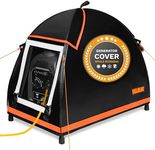Buying Guide for the Best Quiet Diesel Generators
When choosing a quiet diesel generator, it's important to consider several key specifications to ensure you select the best fit for your needs. Diesel generators are known for their durability and efficiency, but finding one that operates quietly can be crucial, especially if you plan to use it in residential areas or during events where noise levels need to be kept to a minimum. Here are the key specifications to consider and how to navigate them to find the right generator for you.Noise LevelThe noise level of a generator is measured in decibels (dB). This spec is crucial if you need a generator that won't disturb your surroundings. Generators typically range from 50 dB to 80 dB. For a quiet generator, look for models that operate at 60 dB or lower, which is about the noise level of a normal conversation. If you need the generator for camping or residential use, aim for the lower end of this range. For construction sites or industrial use, a slightly higher noise level might be acceptable.
Power OutputPower output is measured in watts and indicates how much electrical power the generator can produce. This is important because it determines what and how many devices you can run simultaneously. Generators can range from a few hundred watts to several thousand watts. For small appliances and electronics, a generator with 1,000 to 2,000 watts might suffice. For larger appliances or multiple devices, you may need 3,000 to 5,000 watts or more. Assess your power needs by listing the devices you plan to use and their wattage requirements.
Fuel EfficiencyFuel efficiency refers to how long a generator can run on a specific amount of diesel. This is important for cost savings and convenience, especially during extended use. Generators with higher fuel efficiency will run longer on the same amount of fuel. Look for models that offer a good balance between fuel consumption and power output. If you need a generator for long-term use, such as during power outages, prioritize models with higher fuel efficiency.
Tank CapacityTank capacity indicates how much fuel the generator can hold. This is important because it affects how long the generator can run before needing a refill. Generators with larger tanks can run for longer periods without interruption. If you need a generator for extended use, such as during a camping trip or a long power outage, look for models with larger tank capacities. For occasional or short-term use, a smaller tank may be sufficient.
PortabilityPortability refers to how easy it is to move the generator. This is important if you need to transport the generator frequently. Portable generators typically have wheels and handles for easier movement. If you plan to use the generator in multiple locations, such as for camping or outdoor events, look for a model that is lightweight and has good portability features. For stationary use, such as at home, portability may be less of a concern.
DurabilityDurability refers to the generator's ability to withstand wear and tear over time. This is important for ensuring a long lifespan and reliable performance. Look for generators made with high-quality materials and robust construction. If you need a generator for heavy-duty use, such as on construction sites, prioritize models known for their durability. For occasional use, a less rugged model may be sufficient.
Starting MechanismThe starting mechanism refers to how the generator is started. Common options include manual recoil start, electric start, and remote start. This is important for ease of use. Manual recoil start requires pulling a cord, which can be physically demanding. Electric start is more convenient, as it starts the generator with the push of a button. Remote start allows you to start the generator from a distance. If ease of use is a priority, look for models with electric or remote start options.
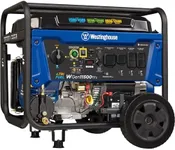

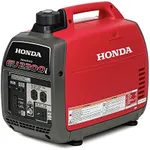
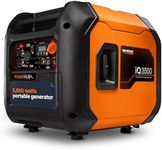


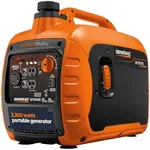
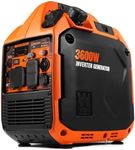
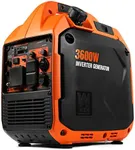

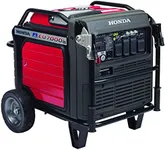
![[Upgraded Version] ALLPOWERS S2000 Portable Power Station 2000W (Peak 4000W) MPPT Solar Generator 1500Wh Backup Battery with 4 AC Outlets for Outdoor Camping RV Emergency Off-Grid](https://images-proxy.bestreviews.guide/YtTaRg6uNv-LaNq9_7sPyzjq62s=/0x150/https://m.media-amazon.com/images/I/31g7wSEKaOL._AC_CX679_.jpg)


